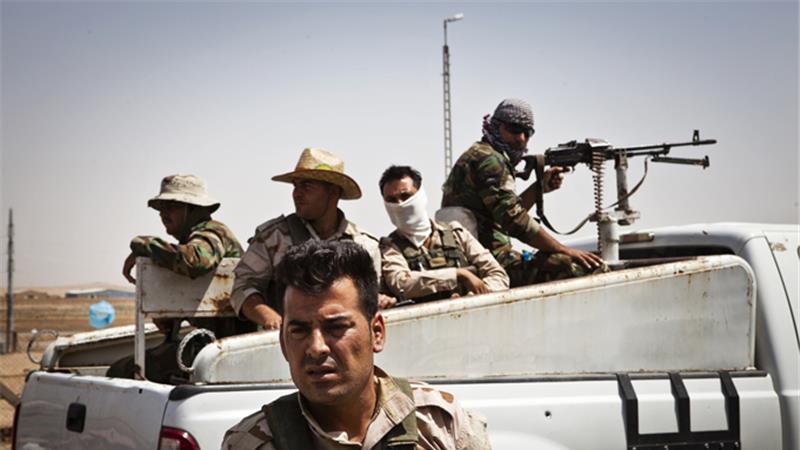Alwaght- US’ public and secret support of Syrian and Iraqi Kurds, rose the questions that why Washington is leaning towards such policies? And how these policies can affect the West Asian region? By playing the Kurd’s Card, US manages to continue approaching its goals against regional countries like Syria, Iraq, Turkey, and even Iran.
Despite various status, The Iraqi Kurds are seeking independence. Masoud Barzani, leader of Iraqi Kurds, has recently proposed referendum too. Also In the fight against ISIS terrorists, Kurds’ effort in eliminating the terrorists even at non-Kurdish regions is evident. One could even say Iraqi Kurds are after expanding their territorial boundaries more than what they have today to even Mosul and Kirkuk. By that, US intends to use this debate as well as the Shiites and Sunnis controversy in Iraq as tools to make central government unstable.
In addition, recently the Iranian Kurds have also had some movement that led to reaction of the Islamic Republic afterward. Also about Ankara, it worries the influence of Syrian Kurds’ and fears the independence movements effects the Kurds in Turkey. Now Ankara is concerned that if the crisis in Syria gets resolved, to what direction will the situation of Kurds go? If Kurds in Syria take steps toward autonomy, considering their relationship with the Kurds in Turkey, without doubt the Kurds in Turkey will follow the same direction. It should also be noted that in recent years conflicts between the Turkish state and the Kurds have increased, and Kurdish peace process has stalled. US could use the Kurd Card now that there have been talks of changing Turkey’s foreign policy towards Syria, and talks of the possibility of cooperation with Russia and Iran.
On this basis it is obvious that all of these situations could be used against Turkey, Iraq, and Syria, to change their policies and behavior. Even though Iranian government’s relationship with the Iranian Kurds is much better than a country like Turkey, US could possibly play the Kurd Card against Iran, but it will not achieve much in Iran considering the situation. However, this approach implies that this card is so important that Washington could use it against four important countries in region. Especially now and in the post-coup attempt era, because there are disputes between Ankara and Washington on the extradition of Fethullah Gulen, US will benefit more from using the Kurd Card against Turkey.
It should be noted that the formation of an independent Kurdish state, has a long background and the establishment of Greater Kurdistan has been proposed for a long time. However in the current situation that every country in the region is facing crises and Kurds are also involved with them, the formation of an independent Kurdish state seems a bit unlikely. Because in that case, the region will move towards an even more critical situation. Also in the case of Syria, all governments have stressed that the country must remain united. Even though behind the scenes, the West probably has plans for Kurdish autonomy in its agenda.
It must be noted that in every region, the federal system is the best system that is able to maintain integrity, and meet people’s demands. Today, with the exception of Iraq the prospect of a federal system in these countries is not too bright. Therefore, it is unlikely that federal systems will be formed soon.
Especially in Turkey it is very unlikely that talks of autonomy or formation of a federal system could be triggered. Erdogan’s government, in order to avoid such situation, should follow the same policy that had proposed during his prime minister era. This means the government should respect the cultural, political, and social rights of Kurds to avoid their dissatisfaction.
In Syria, the issue of Kurds is directly connected to the crisis in this country. If within the process of solving this crisis the constitution changes, rights for Kurds could be implemented in the new constitution to resolve their issue there and then. But otherwise, we may witness the movements of the Syrian Kurds for autonomy.
Afshar Soleimani, Iran’s Former Ambassador to Azerbaijan



























